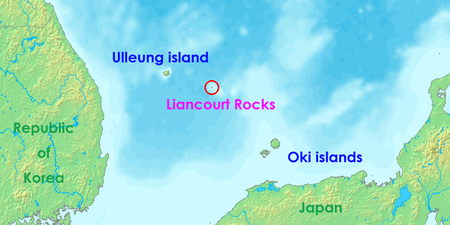|
| 서한 |
시정서한 |
|
| 매체 |
웹사이트
|
|
| 이슈 |
|
|
| 언어 |
|
|
| 서한보내는곳 |
https://en.wikipedia.org/wiki |
|
| 오류내용 |
|
|
| E-mail / Contact |
|
|
서론 |

Dear WIkipedia, Hello, this is Yoohyun Sung from South Korea. I am working on a project to correct typographical errors about Korea’s history and territory. I visited your website and was distressed that you have chosen to mark ‘Liancourt Rocks’ instead of the appropriate term ‘Dokdo.’ I hope you would be able to solve this problem.
|
|
| 본론 |
While I was reading one of your posts about Dokdo, I found a terrible error marking ‘Dokdo’ as ‘Liancourt Rocks.’ Dokdo has been Korea’s territory since the 6th century. Dokdo-an island located in the middle of East sea- belongs to Korea’s jurisdiction as well as the East sea. The history proves that Dokdo belongs to Korea; for example the Imperial edict No. 41, established in 1900 is clearly stating that Dokdo belongs to Korean territory. Also Korean armies are dispatched to take care of the island. However, the Japanese government is continuously claiming that Dokdo is part of Japan, providing old documents as evidence. This cannot be a fair nor true basis that proves Japan’s claim since Japan damaged tons of Korea’s historical materials over the 35 years they forcibly ruled over Korea. They are just arguing with hardly acceptable evidences and using their diplomatic position to make absurd claims.
|
|
| 결론 |
A huge conflict over the ownership of Dokdo is going on endlessly. Nevertheless it is an obvious fact that Dokdo has been, is, and always will be Korea’s territory. I ask you to erase ‘Liancourt Rocks’ from the map and replace it with ‘Dokdo’ only. It is a totally wrong term and it must not be used anywhere. Also, if possible, please text me back with the implemented change. Thank you for reading my message. Yours truly, Yoohyun Sung |

